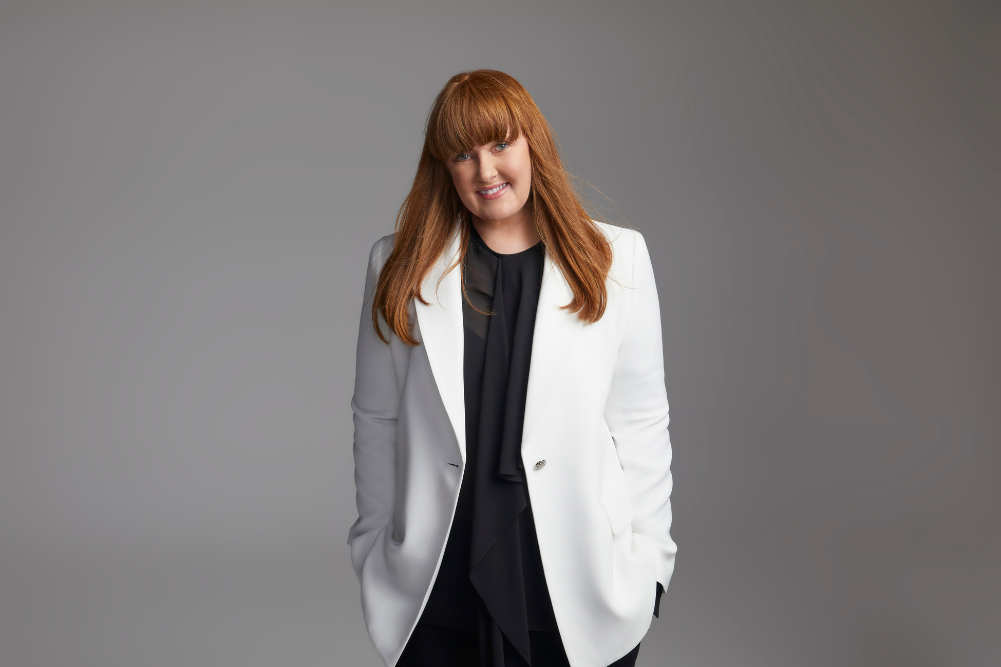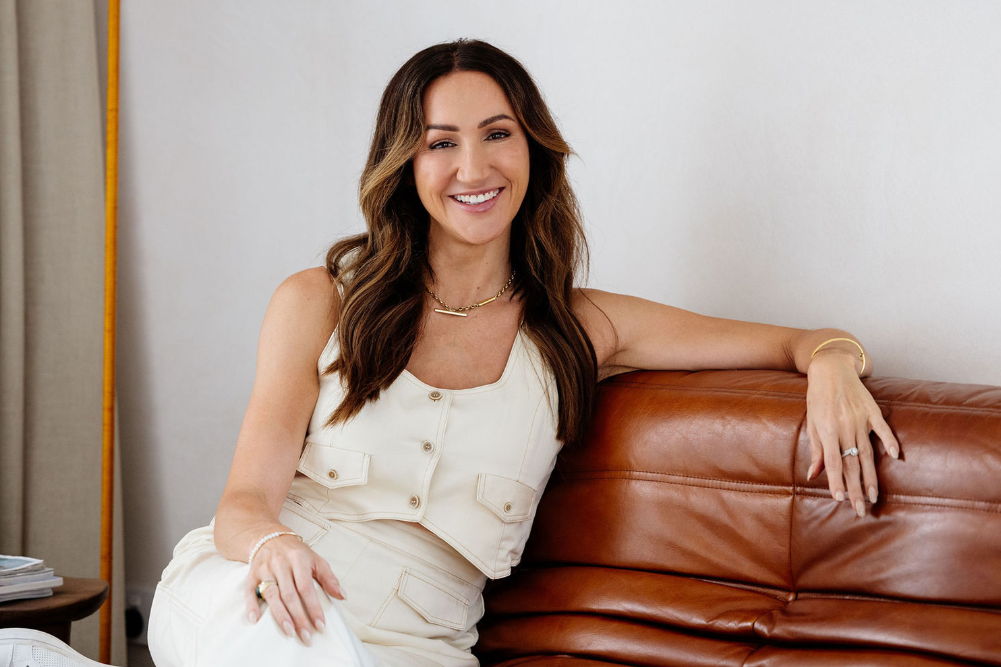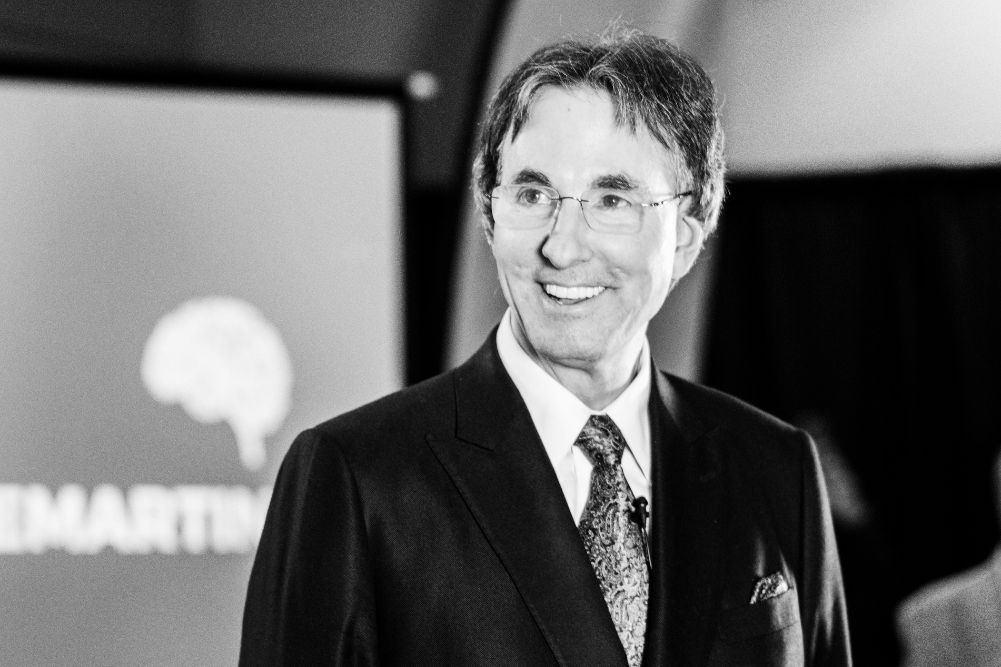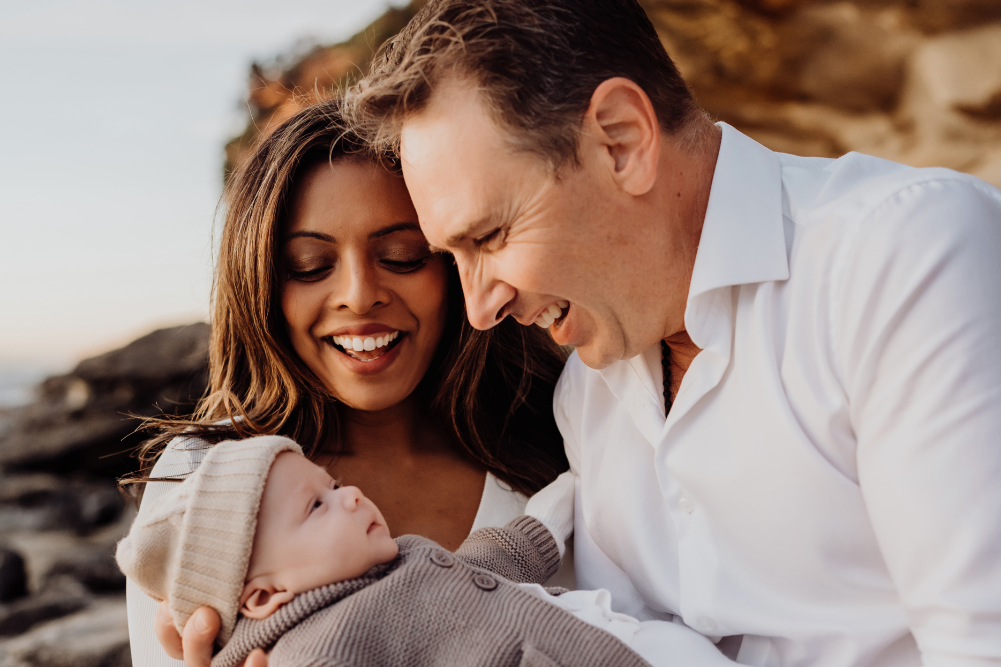Meet the founder of ecostore, Malcolm Rands
Malcolm Rands is your classic entrepreneur. Tenacity, self-belief, unflagging optimism, flexibility, tolerance for ambiguity, defiance of conventional wisdom: the ecostore founder has these traits in spades. Yet it’s his passion for social enterprise and his vision for a future that others can’t quite imagine, plus a remarkable ability to communicate that vision, that mark Rands out as a visionary, a trailblazer whose innovations will help to shape a better world — and, if he has his way, change it.
Sitting across from this lanky man in a trendy Sydney cafe, though, it’s all too easy to forget that in 20 years he has turned a humble mail-order business operating out of his basement into a company that generates an annual turnover of NZ$46 million. ecostore has become a leading New Zealand manufacturer and retailer of sustainable household and personal care products. The range is stocked in thousands of stores worldwide.
Malcolm Rands is as passionate as ever about caring for the environment and people, and building strong communities.
But Rands has such a laidback Kiwi vibe that it’s not until he gets fired up about an idea — and that happens frequently — that you understand how he’s accomplished so much. What quickly becomes clear is that this 60-year-old ideas man is deeply committed to environmental sustainability, community-building and success on his own terms.
“We need huge success stories from our industry, which is ethical enterprise, social enterprise or cause-related business, because then other people will want to copy,” says Rands. “The best way we can change the planet is to say, ‘Hey, that’s why I make money. Not just to make money but to feel good about it, and be able to sleep at night.’”
Childhood adventures
Thinking differently is something Malcolm Rands has always been good at. Perhaps it’s a by-product of being born into a family where charting your own path was expected and celebrated.
“I had very eccentric parents,” recalls Rands. “My father was into yoga and fasting even before all the hippies. He did that in the late 50s; he was way before his time. And Mum had a saying — she got it as a number plate — which was, ‘Why not?’ That was her attitude.”
In his autobiography Ecoman, Rands writes that his parents lived like beggars so that every now and then they could live like kings. “My parents were right into adventures,” he says. “Every Sunday we’d go on an adventure. Every Sunday. And then probably twice a year we’d go right around New Zealand somewhere, for weeks.”
“That’s a classic Fairground project — taking on tricky, horrible things, figuring out how to do them, creating a successful, commercial model, and then sharing back for free.”
Along with frugality, a non-judgemental attitude and a strong work ethic — seven-year-old Rands was encouraged to start a paper run so he could save up to buy a much-desired bike — this adventurous spirit seemed to be a part of the family brief.
When Rands was nine, his engineer father took the family to England for a year to further his training. “We bought this enormous Land Rover and huge caravan and spent three months just travelling around the Continent. And going there and back we actually went by boat. You’d stop at all these ports along the way: Hong Kong and Singapore and Ceylon and through the Suez Canal … It was great.”
This was doubtless an unconventional upbringing for a child growing up in the hilly suburbs ringing NZ’s capital city, Wellington, in the 50s and 60s. Not surprisingly, Rands wasn’t like other kids. He was a smart boy, somewhat of a loner — a “geek” — even though he loved people and wanted to belong. Yet what set him apart became gold in later life.
One ‘cool dude’
In 1969, the family upped sticks and moved to Auckland, became involved with an experimental New Age group rather than the church of their Wellington roots, and 15-year old Malcolm was enrolled in the then most liberal school in New Zealand. He bought a motorbike, scored his first kiss, gained acceptance among his peers — and confidence — and started a band.
Set to follow in his dad’s footsteps, he enrolled in engineering school. But the long-haired, bearded, bell-bottomed keyboarder in a 70s glam-rock band — “a cool dude at last” — dropped out after a year and retrained in radiography: a qualification he could travel with. After graduating, he moved across the ditch to work at St Vincent’s hospital in Sydney before venturing further afield.
Rands spent three-and-a-half years working in Australia, the US and London and adventuring on the side. Travel relieved him of his shyness, opened his eyes to different cultures and ways of living, and influenced his future path. He lived in a kibbutz in Israel and backpacked through Mexico, Egypt and India, yet the experience he says shaped him most was the first place he landed: Newport Beach in California.
"I thought, ‘There’s got to be more than just going for wealth and luxury in my life.’”
“[My friend Tom and I] went in the off-season and ended up in these amazing houses; we got them through the local university. What really got me was that here I was, aged 24, living the American dream — probably the Western-culture dream — to live on the beach in a really rich area, and I discovered it was just completely shallow.
“All my local friends had no purpose because everything they wanted in life they’d just buy. So I thought, ‘Well, here’s the Western dream, and there’s something really lacking.’ That changed me, quite radically. I thought, ‘There’s got to be more than just going for wealth and luxury in my life.’”
Gardens, community & radical ideas
Rands returned to New Zealand as a 26-year-old lacking direction, and moved in with his parents. He’d enjoyed radiology but it had left him disillusioned by the conventional way of looking at health and he knew that career was over.
Feeling the need to ground himself, Rands decided to dig a Garden for his mum. He visited the library for a how-to guide and “by complete kismet” — one of many moments of synchronicity in his life — the first book he found was on organic gardening. He became obsessed with the topic and sees this as the first step on his future path.
At the same time, Rands found work at the Auckland City Council’s Parks and Recreation department. He became close to a visionary woman called Sandy Morrison who was big in the arts field and, through her, met high-powered community people, “people doing all sorts of thinking about life in the city”, such as co-housing.
“The best way we can change the planet is to say, ‘Hey, that’s why I make money. Not just to make money but to feel good about it, and be able to sleep at night.’”
He and his then girlfriend bought a place in inner-city Grey Lynn and created an urban farm: chickens, fruit trees, vegie gardens — the lot. He loved it. So when Morrison mentioned that a friend in the small Northland city of Whangarei was running a summer festival and needed someone to run a games team in the parks, Rands jumped at the chance.
It was in Whangarei, among the activists working for the community arts council, that he found his niche — and stayed. “I found myself in a more culturally aware, stimulating and challenging group than anything I’d found in Auckland. Excitement turned out to be nothing to do with the size of the city: it was the people you surrounded yourself with who made all the difference.”
And it was there, surrounded by activists and the radical ideas and politics of the 1980s — and inspired by A Pattern Language, a book on how different layers of society should optimally function — that Rands got excited about the idea of communal living.
In the summer of 1984, he walked with three arts council friends up a dirt track winding through a valley off the Tutukaka Coast (the second-best coastline in the world, according to National Geographic). The trio fell in love with the spot, bought the 150-acre block and moved there with their partners the next year.
A place to stand
So began two lifelong love affairs. Rands was soon joined by his future wife, Melanie, and the group developed New Zealand’s first eco-village, Mamaki, along the ideas of permaculture: “looking after the land, looking after our neighbours”.
For the first two years, the three households camped during summer and cooked over an open fire, and rented a cheap house nearby in winter. Rands remembers it as a romantic time — “we were making our dream real” — and, almost three decades on, Melanie and Malcolm are still going strong.
As is Mamaki, unlike many communal living setups of the 70s and 80s. Rands attributes the success of the eco-village to two things. First, a strong structure. “We spent the first two years getting clear what our purpose was, what our boundaries were, how we were going to work together, and not many ventures do that.”
Second, he says, “We were brave enough to cluster our houses close together. If you walk out of your house at Mamaki, you often bump into your neighbours. And that’s where all the juice of the village is: casual, everyday bumping into neighbours, having a chat.”
The village is what he calls his tūrangawaewae, a Māori concept meaning “a place to stand”. “[It’s] a physical place on the planet where you know you completely belong, you won’t be pushed off it, your descendants will still be on this piece of land. It’s an incredibly powerful thing. Most of us don’t have it and a lot of the damage to the planet is because we’ve lost this.”
Today, the couple split their time between Auckland, where ecostore HQ is based, and Mamaki. “We’re three days in paradise, with chickens and big organic gardens and neighbours who are like family, and four days in a vibrant city. It’s just amazing.”
Money with heart
Back when they were establishing the eco-village, though, the couple alternated part-time work: Malcolm on cultural projects for not-for-profits in Whangarei, Melanie as a primary-school teacher. They and their two daughters, Ahi and Keva, embraced voluntary simplicity and lived on $20,000 a year for almost a decade.
It was tough living on a shoestring but, says Rands, “We did it because we wanted to trade money for time with our young kids. It was such a delight for a guy to be able to do that, when you’re trying to make a difference in the world, to get ahead.”
The idea for ecostore emerged from a need to make money with heart. Rands had put his everything into organising a midwinter festival in Whangarei, only for it to be cancelled. “It shook me to pieces,” he says. “I thought, ‘I never want to go through this situation again.’ I knew I had to find a new way of running business. I was going to invent a completely new way of looking at equitable capitalism.”
He decided to start a not-for-profit that allowed him to do the community-building work he loved, funded by an ethical enterprise that could stand on its own two feet. After much research and a friend’s offer of $30,000 financial backing, Rands decided to found a business that made it easy for people to clean their houses and bodies without using nasty chemicals.
In 1993, he started ecostore — or Fairground Ethical Traders, as it was first known — alongside the non-profit Fairground Foundation. “It has always been about the money — you need a lot of money to run a not-for-profit — but not so I could end up with a super yacht. I needed to generate good money so there’s some left over to feed the not-for-profit work I needed to do.”
Rands loved being a stay-at-home dad so he and Melanie started the business from their dug-out basement. “We started selling products by mail order: household cleaners, body and baby products, a full range of organic gardening products and a full range of organic pet products. I even had a range of household paint at one stage.”
The company grew and, in 1997, the family moved to Auckland to set up an ecostore shop downtown in Freeman’s Bay. Rands met valuable mentors and took on more staff as well as a business partner so he had the finance to keep going, focusing the business on what he did best — household cleaning and body products — and launched into supermarkets.
Today, ecostore sells masterfully branded products that are formulated from the fewest ingredients possible by highly regarded Kiwi scientist Sir Ray Avery and are found on shelves in NZ, Australia, the US and Asia. It still runs by Rands’ original values: environmental responsibility, openness, honesty and supporting Kiwi product, plus caring for human health.
Big plans ahead
At 60, Malcolm Rands is as passionate as ever about caring for the environment and people, and building strong communities. He says he has a “fantastic” management team and is taking a back seat in the day-to-day running of the business. He has become very health conscious and, increasingly, spends his time talking to media and at events about the ecostore model, the impacts of “nasty chemicals” and his ideas for a better future.
He’s also busy overseeing new innovations. One he’s very proud of is how ecostore has become the first company in the world to convert all its packaging to a revolutionary plastic made from sugar, which removes carbon from the atmosphere. Another plan is to create community refill stations for ecostore products, to bring commerce into communities and reduce waste.
And, after 20 years of sinking profits into a growing business, he’s embarking on large Fairground Foundation projects. About 10 per cent of ecostore’s profit goes to the foundation, whose projects over the years have included building organic gardens at schools and trying to get a car-pooling system off the ground in Auckland.
Rands recently struck at deal with private companies and government agencies to cover Auckland’s ecostore in solar panels. “It’s completely zero energy now and is pumping energy into the grid,” he says. “We set up a system so that it didn’t cost us a penny and our power bill is set forever and is paying off the solar panels. Other businesses in NZ can now do the same thing.
“That’s a classic Fairground project: taking on tricky, horrible things, figuring out how to do them, creating a successful, commercial model and then sharing back for free to the community and other businesses.”
His next project is an urban version of his much-loved Mamaki: a “future-proof neighbourhood”. “People who live there will feel like they’re in a neighbourhood. And to me, to be able to live in the city, to know that you’re living sustainably, you’re living somewhere you belong … that should be a human right, and it’s not happening.”
The parts are in motion, too, Rands says. He and a property developer partner are scouting for a location, a TV company is keen to film a documentary and people already want to buy in.
“We want to set the standard so others will want to copy us. Raise people’s expectations about how they think they should live, do it for the same sort of price — and make a good profit. [I want] local property developers to say, ‘Well, if that idiot Rands can do it, imagine if a real expert like me came along!”
Why is it that, when many people in their 60s are slowing down and other self-made businessmen are buying BMWs, Malcolm Rands is pioneering grand schemes for a future others can’t quite imagine?
“It’s because I’m having a wonderful time; it’s as simple as that. I just love doing it. I’m a funny guy: I’m either full bore because I’m passionate about something, or I can do nothing — I can just sit and read a book. But,” he laughs, “I’ve got no middle gear.”
And that’s how being different can create a world of difference.
For more details, visit ecostore.com.au.








